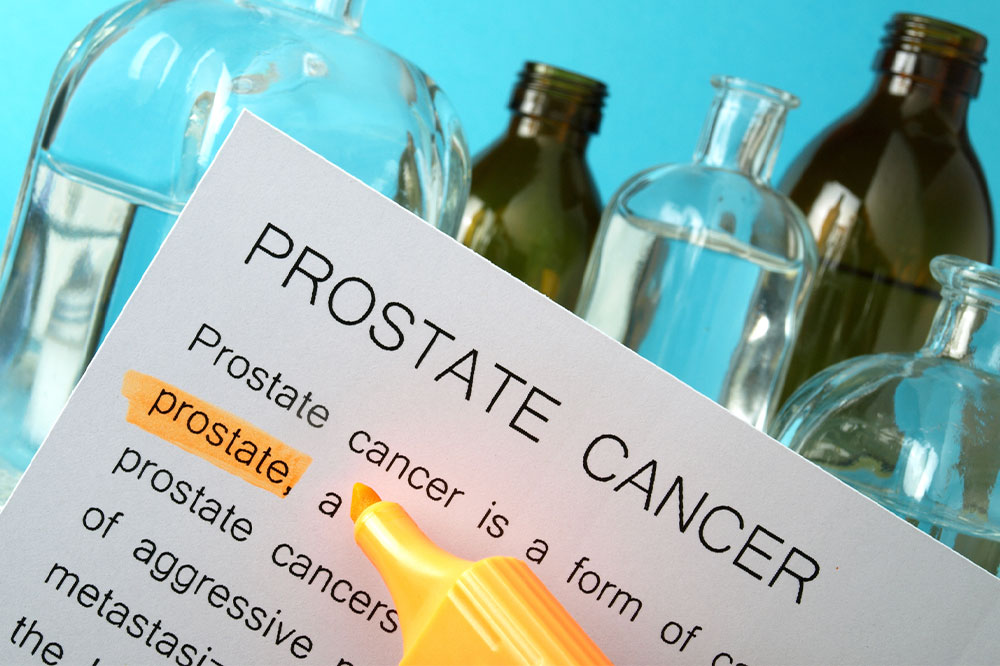Prostate Cancer Symptoms
The prostate gland makes fluid that forms part of semen. The prostate lies just below the bladder in front of the rectum. The prostate is a gland found only in males. It sits below the urinary bladder and in front of the rectum. The size of the prostate changes with age. It grows rapidly during puberty, fueled by the rise in male hormones (called androgens) in the body. The prostate usually stays about the same size or grows slowly in adults, as long as male hormones are present.

Common symptoms of prostate cancer
1. Urinary symptoms
- Burning or pain during urination
- Difficulty urinating, or trouble starting and stopping while urinating
- More frequent urges to urinate at night
- Loss of bladder control
- Decreased flow or velocity of urine stream
- Blood in urine (hematuria)
2. Advance symptoms
- Blood in semen
- Difficulty getting an erection (erectile dysfunction)
- Painful ejaculation
- Swelling in legs or pelvic area
- Numbness or pain in the hips, legs or feet
- Bone pain that doesn’t go away, or leads to fractures
You should consult with your doctor if you experience any of the symptoms above because these symptoms can also indicate the presence of other diseases or disorders, such as BPH or prostatitis, men will undergo a thorough work-up to determine the underlying cause.
If you are concerned about one or more of the symptoms or signs on this list, please talk with your doctor. Your doctor will ask how long and how often you have been experiencing the symptom(s), in addition to other questions. This is to help find out the cause of the problem, called a diagnosis.
If cancer is diagnosed, relieving symptoms remains an important part of cancer care and treatment. This may also be called symptom management, palliative care, or supportive care. Be sure to talk with your health care team about symptoms you experience, including any new symptoms or a change in symptoms.



